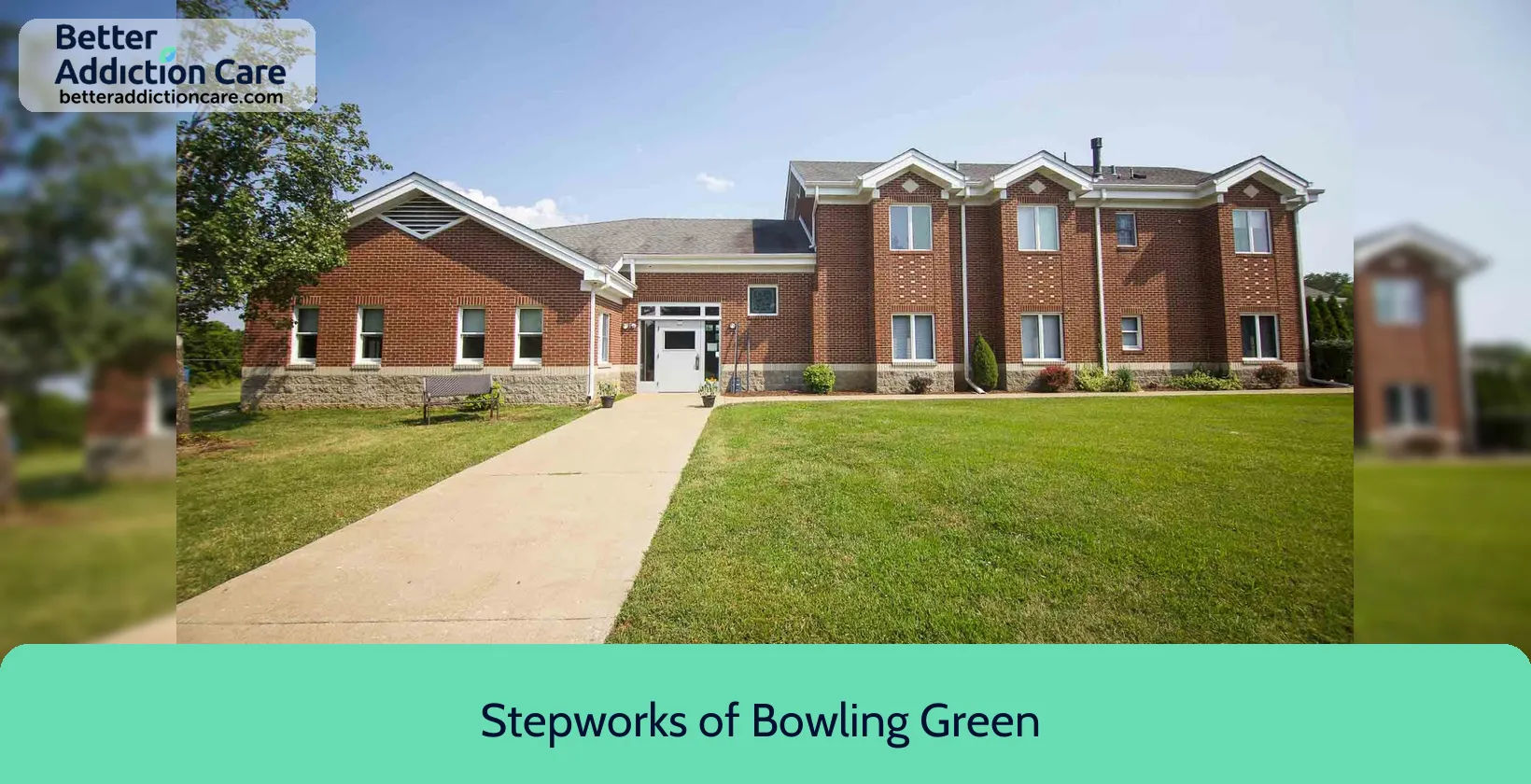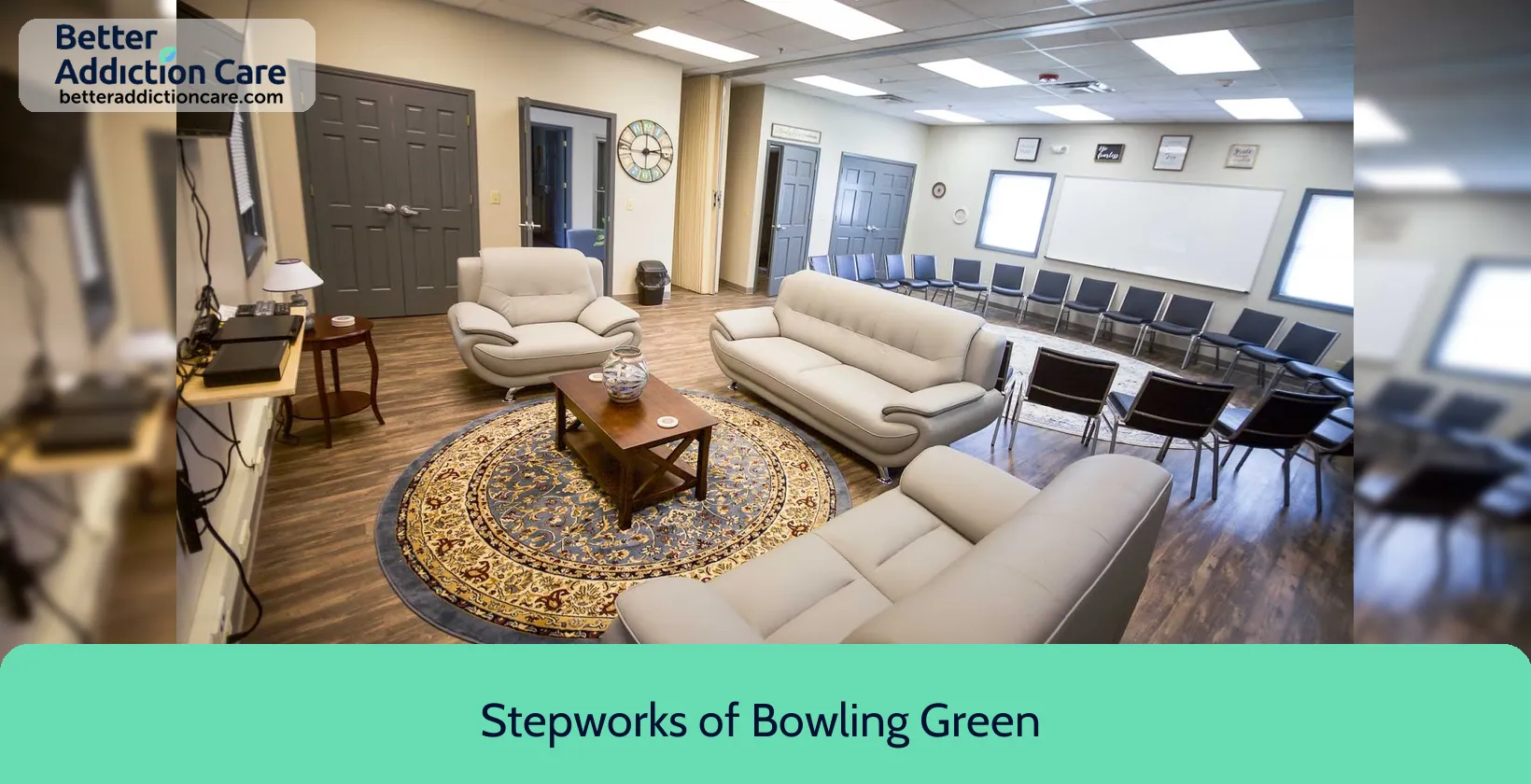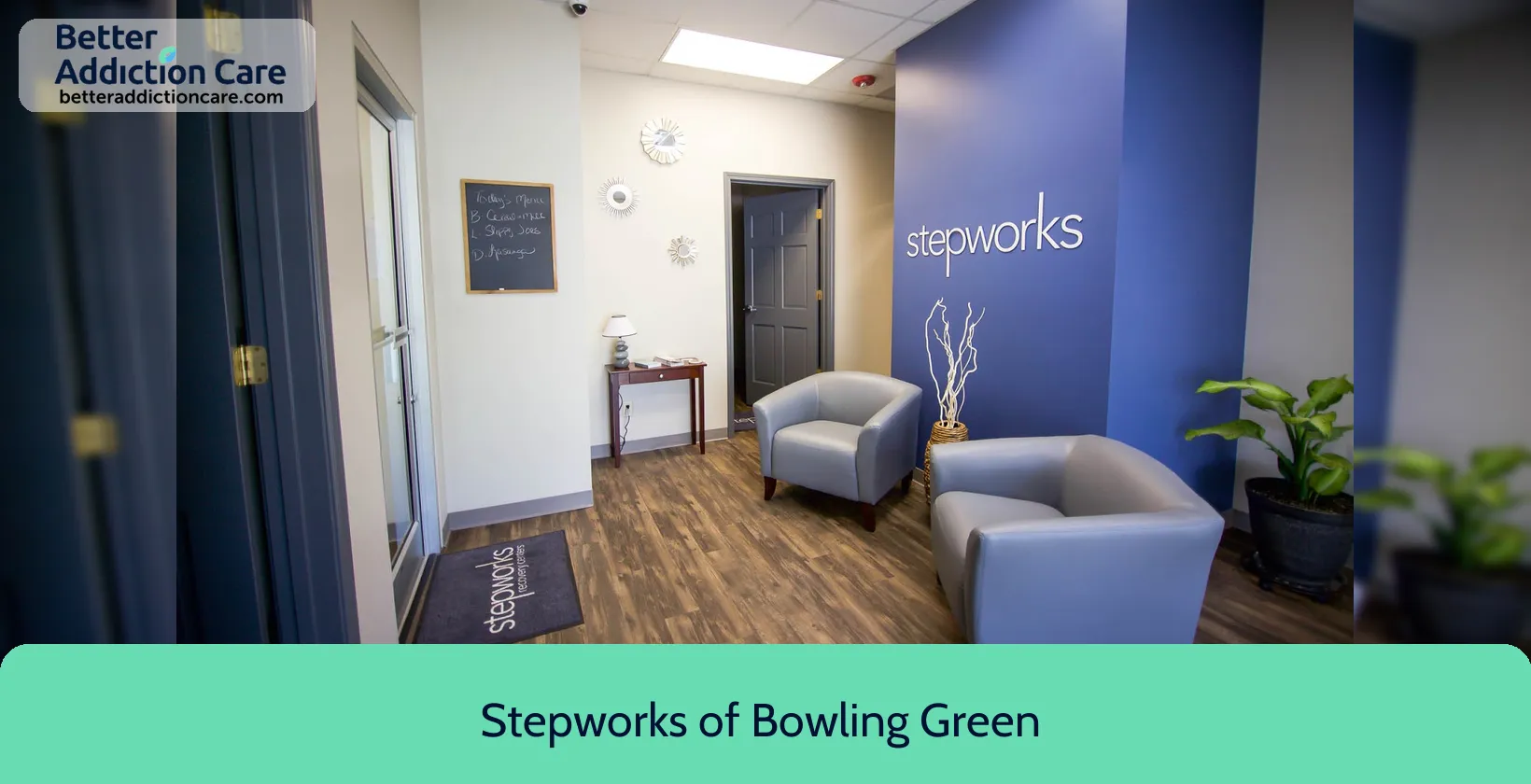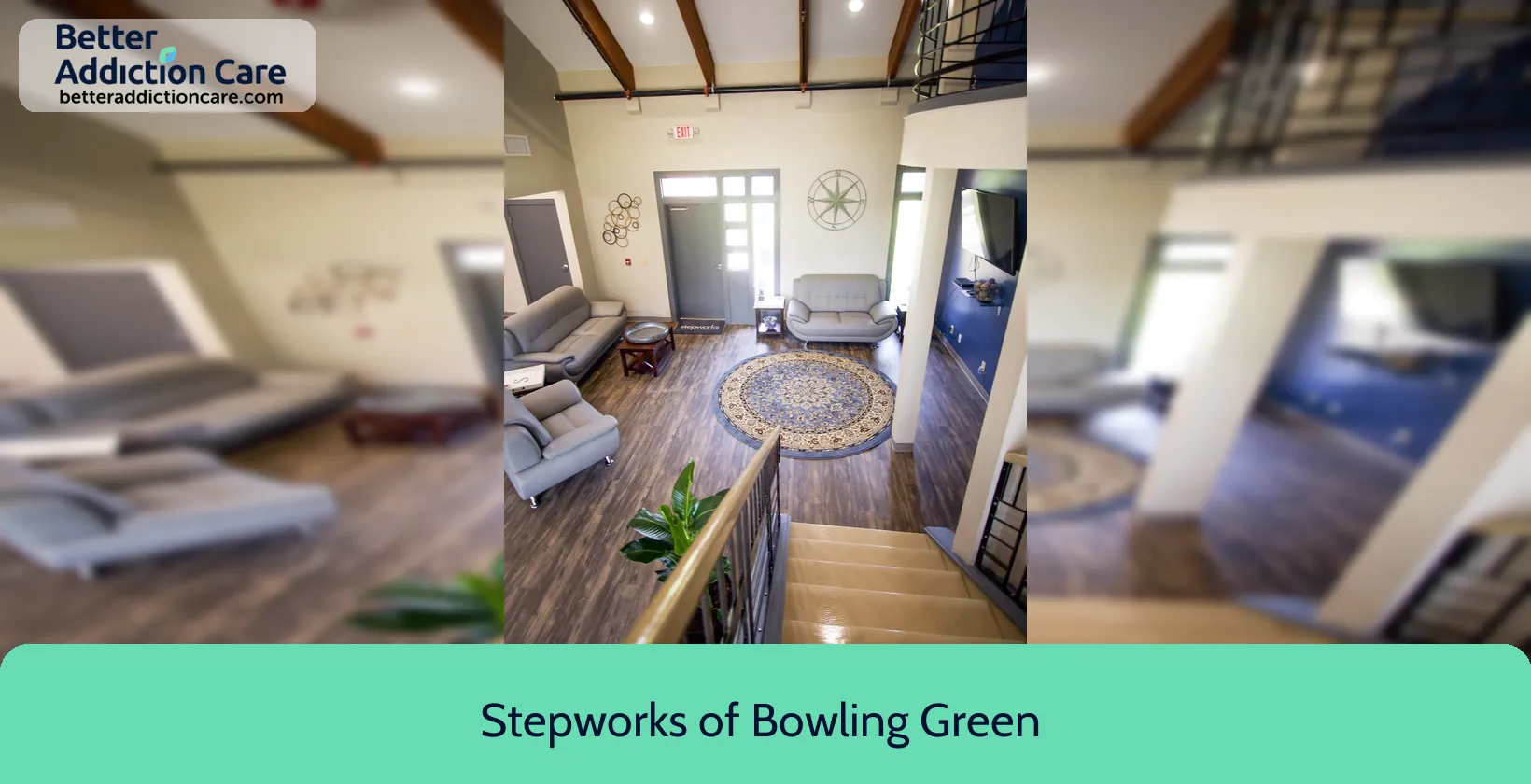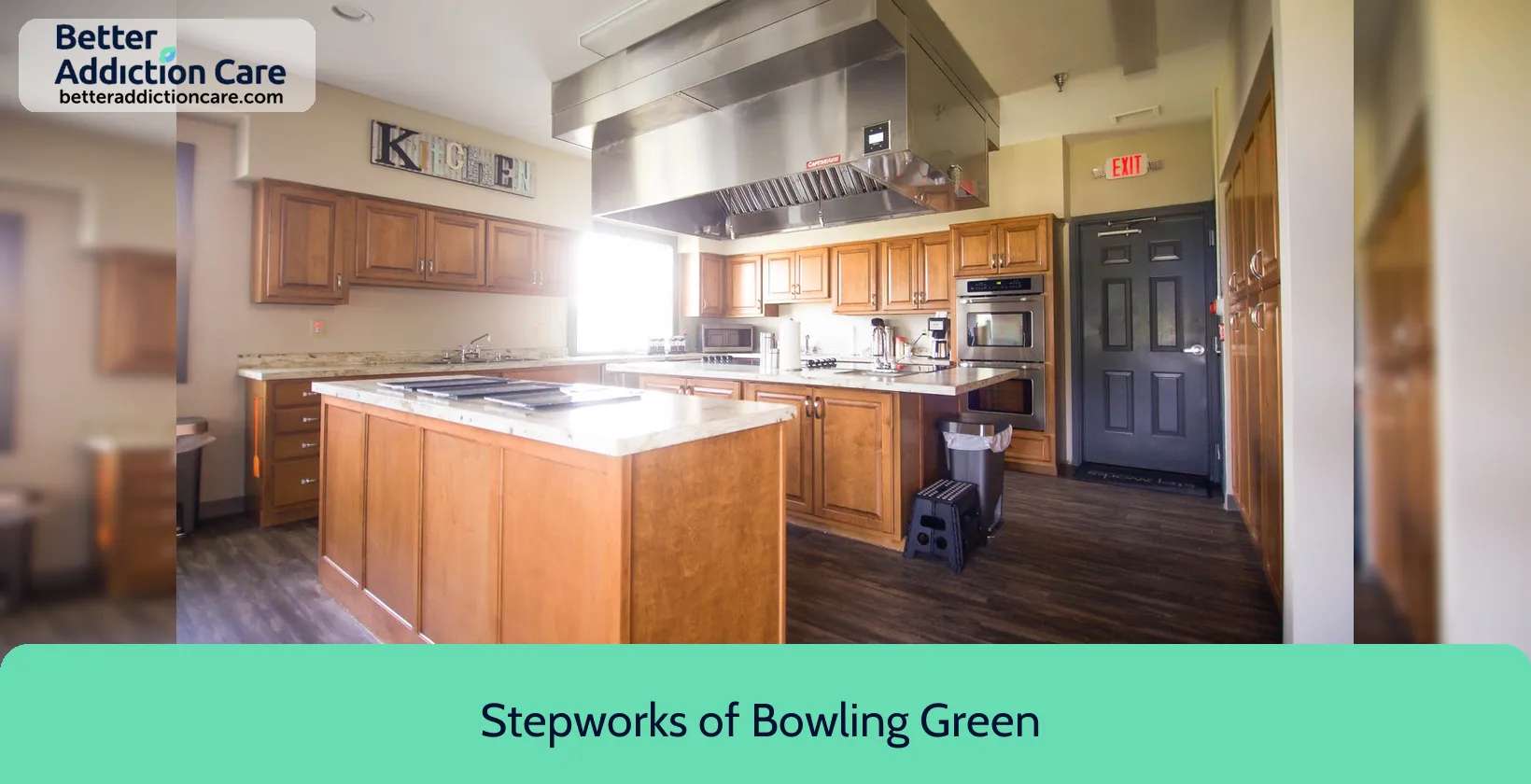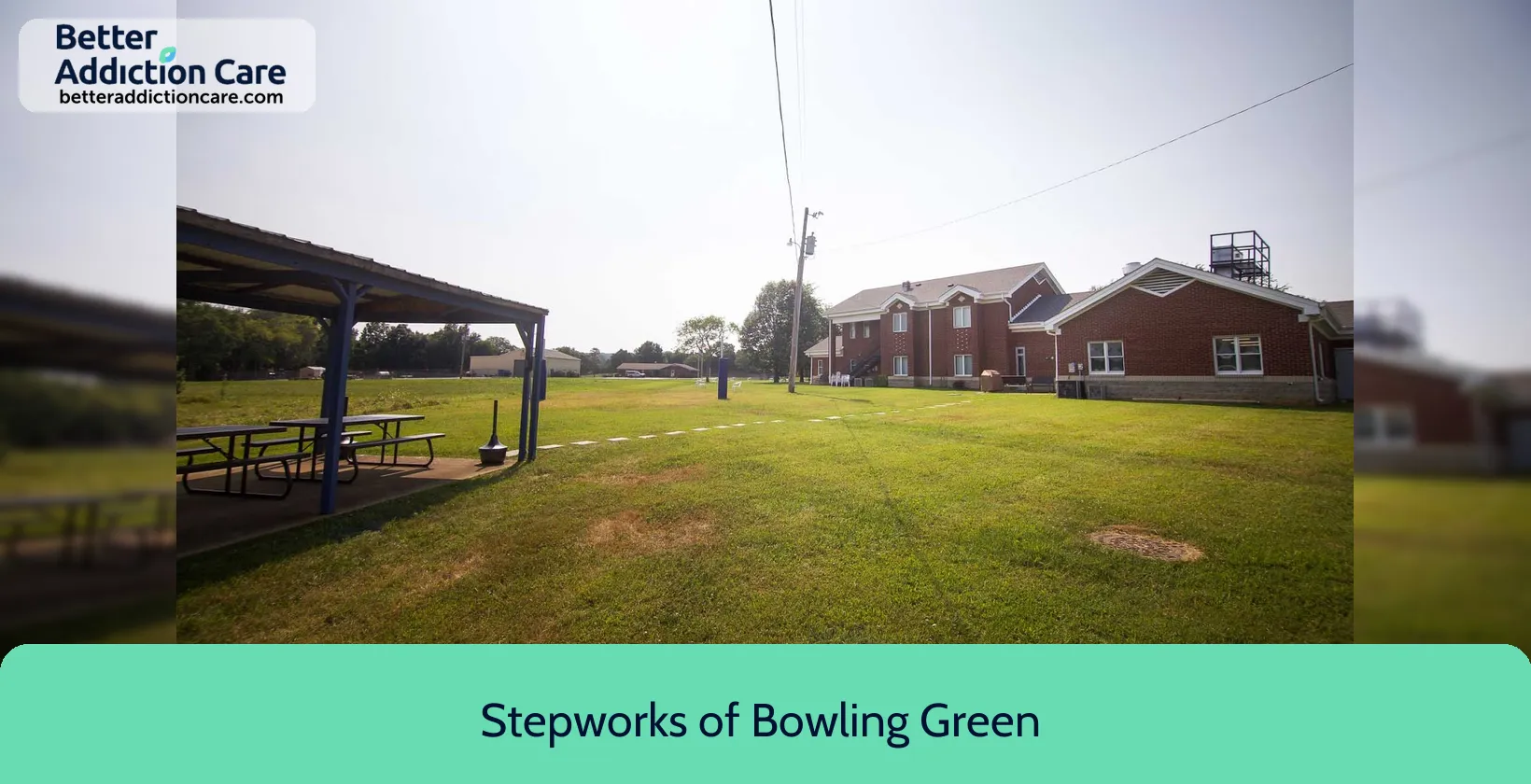Stepworks of Bowling Green - Residential Treatment Services
Overview
Stepworks of Bowling Green - Residential Treatment Services is an accredited substance abuse treatment center that provides inpatient detoxification, for men and women between 18 and 65+ years of age. As part of their special programs, Stepworks of Bowling Green - Residential Treatment Services treats clients with co-occurring mental and substance use disorders, veterans, and pregnant/postpartum women. To help patients achieve sobriety, Stepworks of Bowling Green - Residential Treatment Services provides treats alcohol detoxification, benzodiazepines detoxification, and cocaine detoxification.. Afterward, patients receive group counseling, family counseling, and life skills during treatment. Stepworks of Bowling Green - Residential Treatment Services is located in Bowling Green, Kentucky, providing treatment for people in Warren County, accepting cash or self-payment, medicaid, and medicare.
Stepworks of Bowling Green - Residential Treatment Services at a Glance
Payment Options
- Cash or self-payment
- Medicaid
- Medicare
- State-financed health insurance plan other than Medicaid
- Private health insurance
Assessments
- Comprehensive substance use assessment
- Screening for tobacco use
- Comprehensive mental health assessment
- Outreach to persons in the community
- Screening for mental disorders
Age Groups
- Adults
- Young adults
- Seniors or older adults
Ancillary Services
- Case management service
- Suicide prevention services
- Mental health services
- Social skills development
Highlights About Stepworks of Bowling Green - Residential Treatment Services
7.68/10
With an overall rating of 7.68/10, this facility has following balanced range of services. Alcohol Rehabilitation: 8.00/10, Drug Rehab and Detox: 8.77/10, Insurance and Payments: 6.00/10, Treatment Options: 7.94/10.-
Drug Rehab and Detox 8.77
-
Alcohol Rehabilitation 8.00
-
Treatment Options 7.94
-
Insurance and Payments 6.00
Accreditations
Commission on Accreditation of Rehabilitation Facilities (CARF):

CARF accreditation is a prestigious recognition granted to rehabilitation and human service organizations. It signifies that an organization meets high-quality standards, having undergone a rigorous evaluation process. CARF accreditation boosts an organization's credibility and ensures top-notch care for individuals with disabilities, injuries, or healthcare needs.
LegitScript:

The LegitScript Accreditation signifies an organization's commitment to ethical and high-quality care in the field of addiction treatment and behavioral health. This accreditation allows treatment providers to be included in Google's network, ensuring compliance with HIPAA privacy regulations.
Treatment At Stepworks of Bowling Green - Residential Treatment Services
Treatment Conditions
- Alcoholism
- Opioid Addiction
- Substance use treatment
- Mental health treatment
- Co-occurring Disorders
Care Levels
- Detoxification
- Hospital inpatient treatment
- Short-term residential
- Long-term residential
- Residential detoxification
Treatment Modalities
- Group counseling
- Family counseling
- Life Skills
- Recreational Therapy
- Cognitive behavioral therapy
Ancillary Services
Additional Services
- Pharmacotherapies administered during treatment
- Mentoring/peer support
- Breathalyzer or blood alcohol testing
Special Programs
- Clients with co-occurring mental and substance use disorders
- Veterans
- Pregnant/postpartum women
- Clients with HIV or AIDS
- Clients who have experienced trauma
Get Help Now
Common Questions About Stepworks of Bowling Green - Residential Treatment Services
Contact Information
Other Facilities in Bowling Green

6.92

7.28

6.86

6.77

7.66
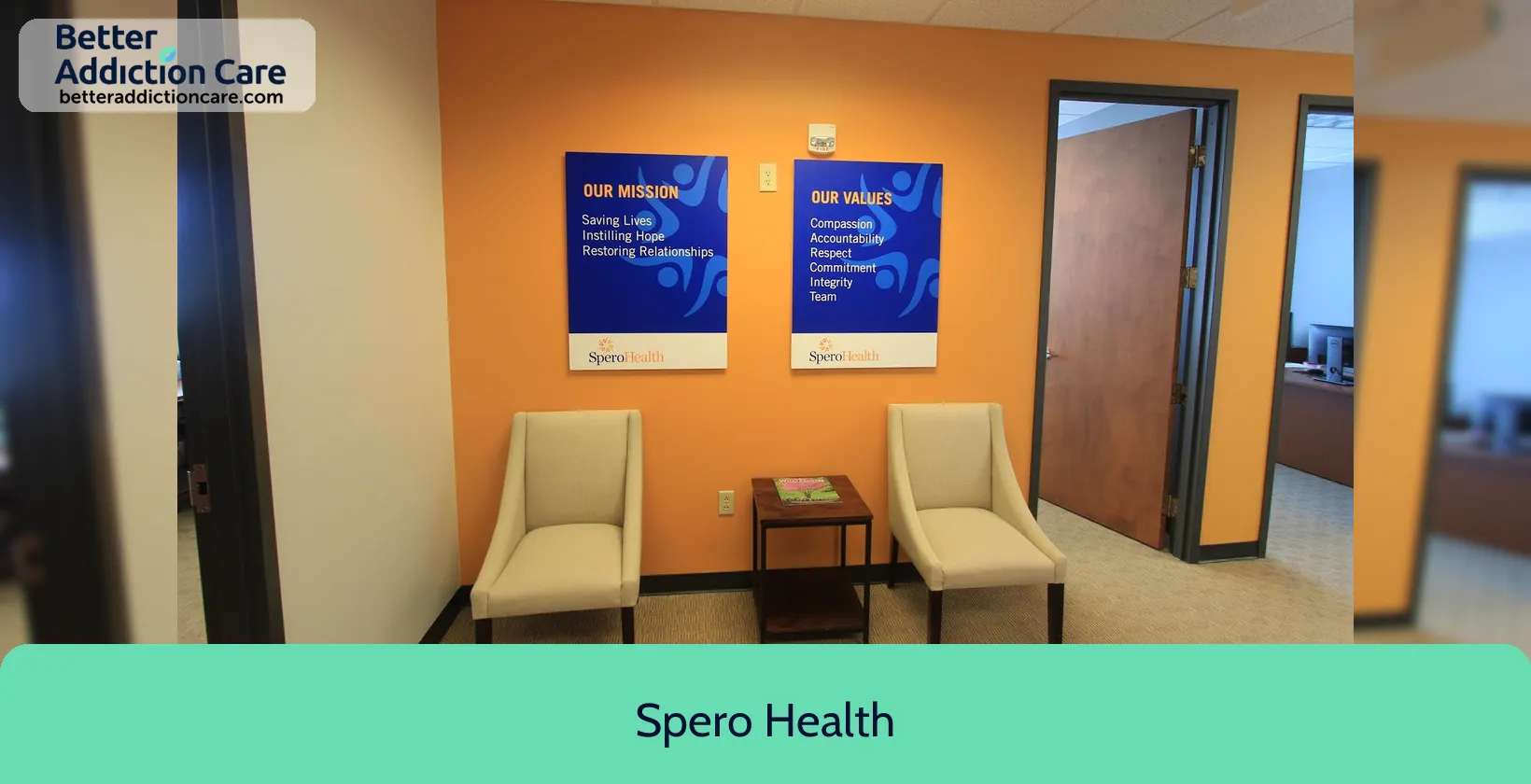
7.39
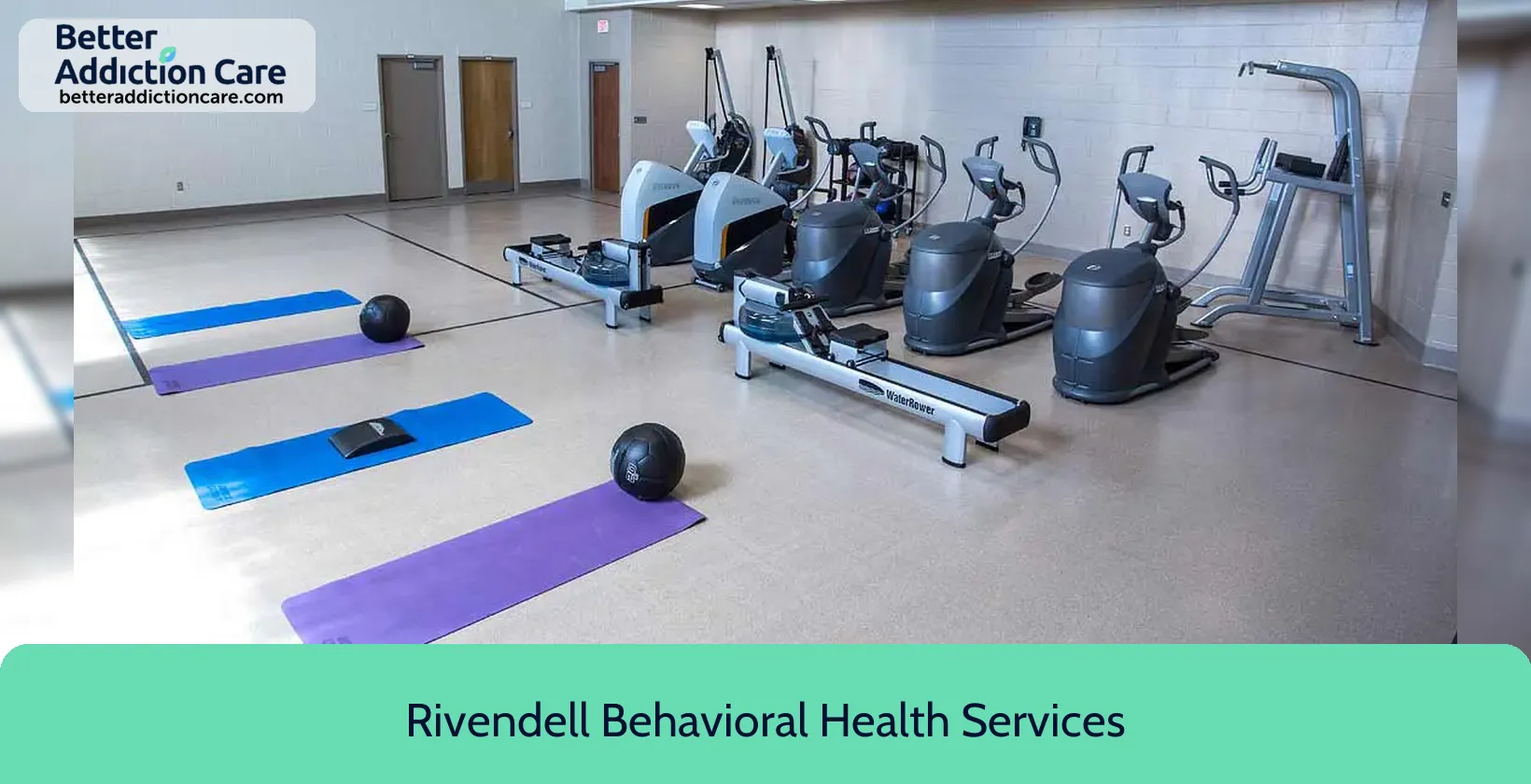
7.66
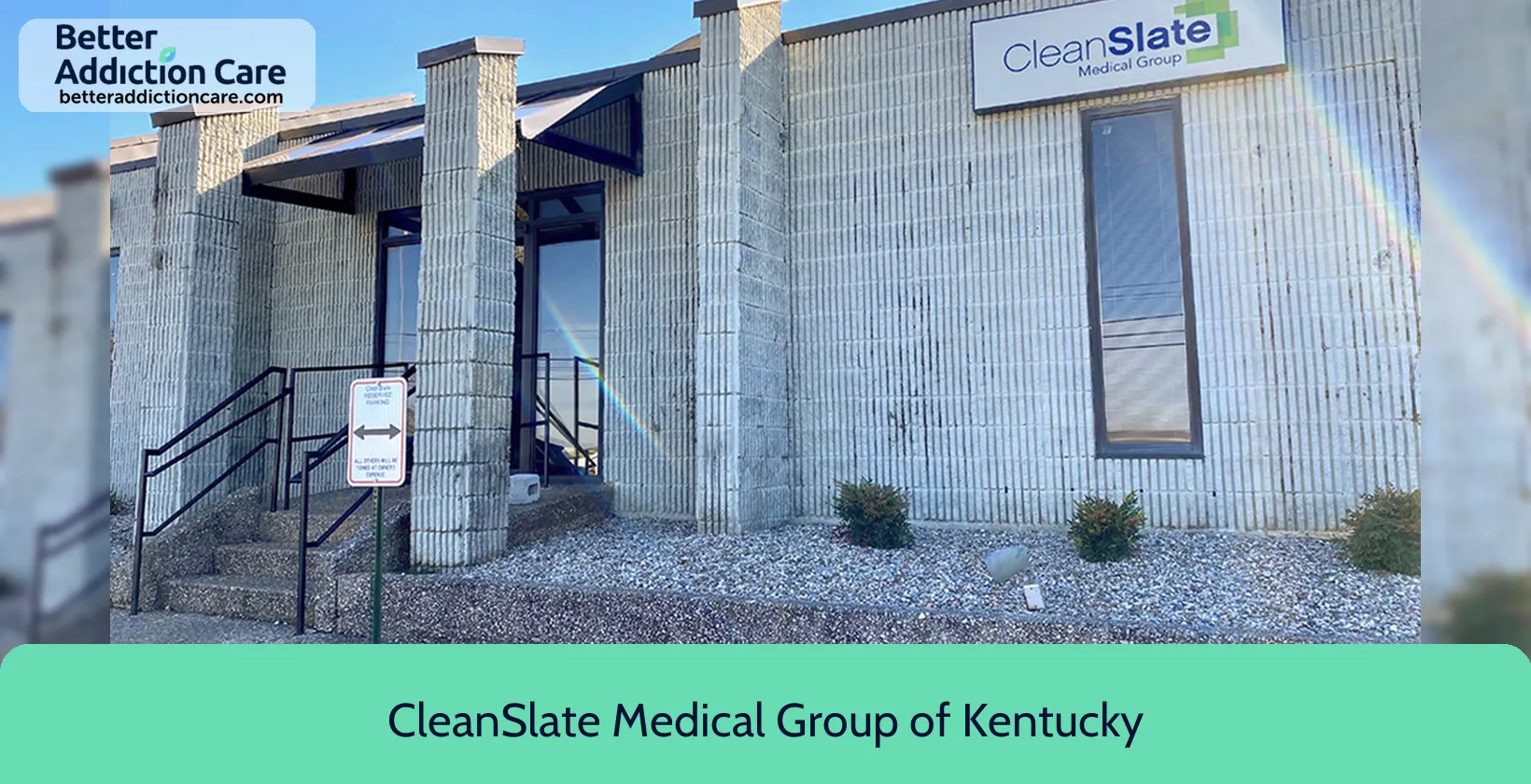
6.96
DISCLAIMER: The facility name, logo and brand are the property and registered trademarks of CleanSlate Medical Group of Kentucky, and are being used for identification and informational purposes only. Use of these names, logos and brands shall not imply endorsement. BetterAddictionCare.com is not affiliated with or sponsored by CleanSlate Medical Group of Kentucky.
